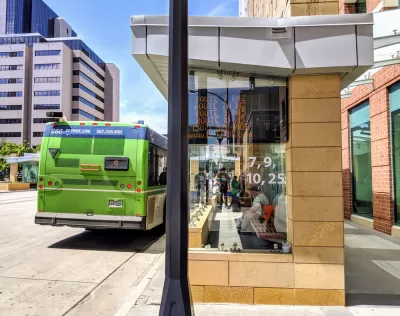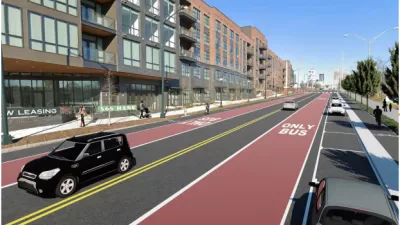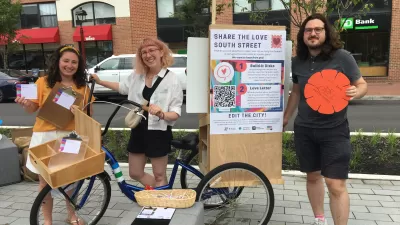Rochester, MN, joins the ranks of cities realizing that community input is worth paying for.

When building something new that will affect lots of people for decades to come, it pays to ask people about what they want. It also pays to pay those people to tell you.
Rochester, a city of 100,000 located 77 miles southeast of Minneapolis and home to the Mayo Clinic, is facing growing pains. Downtown parking is in short supply, streets are congested, and it’s not always easy to get around without a car.
To alleviate parking and traffic congestion, the city’s transit agency is planning a bus rapid transit route, which will start near the Mayo Clinic and head west toward a planned park-and-ride near a suburban tract of single-family homes, stopping at a satellite Mayo Clinic campus and a small retail corridor along the way.
But to make sure that the project benefits those who will use it, the transit agency has convened a paid advisory committee made up of 10 Rochester residents to gather and provide feedback from all over the city. They are paid $25 per hour and offered childcare reimbursement, provided they commit to 30 hours of work between September 2020 and June of this year. They’re just one of many agencies across the nation who realize just how important it is to hear not just from those who typically appear at council meetings and hearings (who research shows tend to be older, whiter and wealthier than the overall neighborhood), but from people from different backgrounds who otherwise couldn’t afford to show up.
FULL STORY: Cities Are Looking to Get Better Community Engagement By Paying for It

Alabama: Trump Terminates Settlements for Black Communities Harmed By Raw Sewage
Trump deemed the landmark civil rights agreement “illegal DEI and environmental justice policy.”

Study: Maui’s Plan to Convert Vacation Rentals to Long-Term Housing Could Cause Nearly $1 Billion Economic Loss
The plan would reduce visitor accommodation by 25% resulting in 1,900 jobs lost.

Why Should We Subsidize Public Transportation?
Many public transit agencies face financial stress due to rising costs, declining fare revenue, and declining subsidies. Transit advocates must provide a strong business case for increasing public transit funding.

Wind Energy on the Rise Despite Federal Policy Reversal
The Trump administration is revoking federal support for renewable energy, but demand for new projects continues unabated.

Passengers Flock to Caltrain After Electrification
The new electric trains are running faster and more reliably, leading to strong ridership growth on the Bay Area rail system.

Texas Churches Rally Behind ‘Yes in God’s Back Yard’ Legislation
Religious leaders want the state to reduce zoning regulations to streamline leasing church-owned land to housing developers.
Urban Design for Planners 1: Software Tools
This six-course series explores essential urban design concepts using open source software and equips planners with the tools they need to participate fully in the urban design process.
Planning for Universal Design
Learn the tools for implementing Universal Design in planning regulations.
Caltrans
Smith Gee Studio
Institute for Housing and Urban Development Studies (IHS)
City of Grandview
Harvard GSD Executive Education
Toledo-Lucas County Plan Commissions
Salt Lake City
NYU Wagner Graduate School of Public Service





























